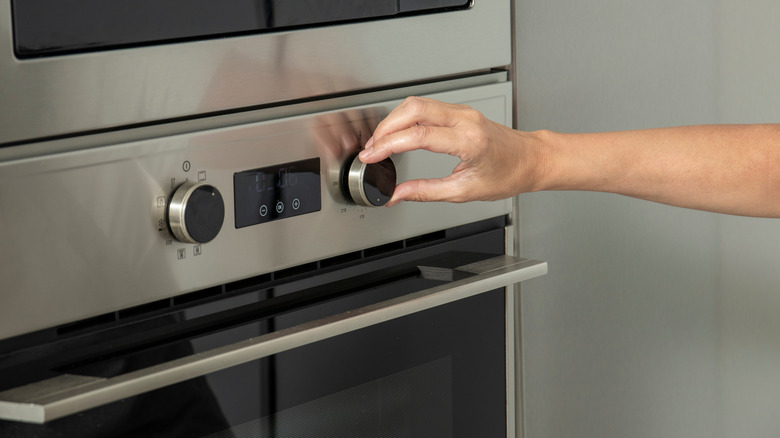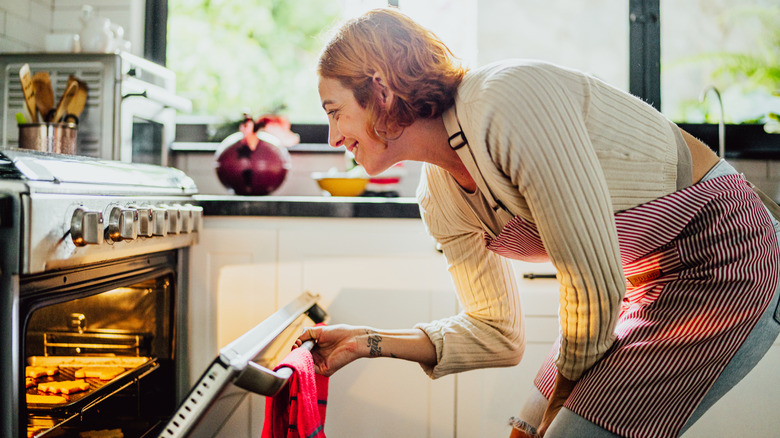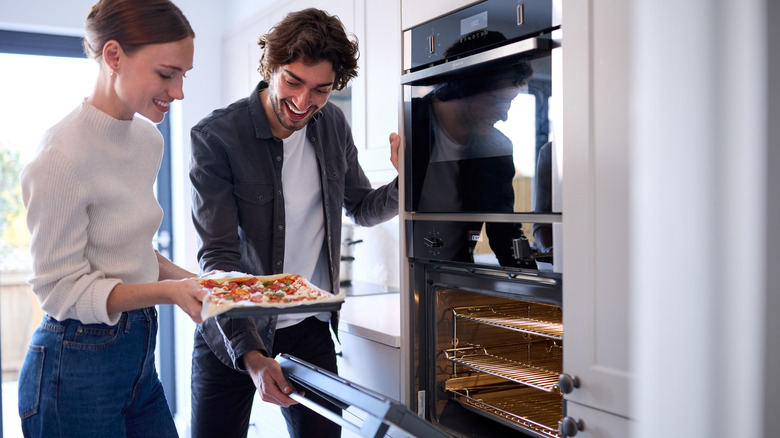Do You Really Need To Preheat The Oven?
Whether you're crafting a vegan pie crust or throwing together a quick banana bread, chances are your recipe kicks off with instructions to preheat the oven. For more complex recipes, preheating offers the perfect window to prep your dish so that when everything's ready, the oven is, too. However, when you're in a rush, or the recipe is short, waiting for the oven to heat up can feel like a chore — especially if you're hungry. It begs the question, do you really need to wait for your oven to preheat before popping your dish in?
Preheating gives you a better shot at achieving the golden outcome you see on your favorite online blogger's post or the elaborate cake recipe you've been dying to try. But not all recipes are that precise. Nachos, for example, are already half-cooked most of the time and simply need a quick melt of the cheese. Ultimately, whether you preheat your oven or not depends on how technical your recipe is, the type of oven you own, and, most importantly, your own preferences.
The pros and cons of the preheating debate
Before you toss your food into the oven, consider what you're cooking. Most recipes recommend preheating your oven, and it's not a bad idea to follow suit. According to chef and menu consultant Rosie Sykes, "Some dishes, such as bread and cakes, require an immediate blast of heat, either to push them into action or to make them set as fast as possible" (via The Guardian). But the oven itself plays a role, too.
Newer ovens, gas ovens, and smaller models tend to heat up quicker than older ones. With better technology, newer ovens warm faster and more efficiently. Gas ovens, while less energy-efficient, preheat swiftly due to the instant heat from propane, although they struggle with heat distribution. Although they are safer and more energy efficient, electric ovens take a little longer to reach the intended temperature.
Your recipe may not always look like the ones on cookbook covers, but skipping the preheating step won't necessarily ruin your meal — unless you're aiming for something specific. Just be sure to cook your dish long enough at the correct temperature to prevent undercooked meals.
How preheating your oven affects specific foods?
The impact of preheating largely depends on what you're cooking. For bread, a preheated oven helps activate the dough's rise, creating that beautiful scoring on your sourdough loaf. A cold oven, on the other hand, can produce a flatter, less flavorful loaf. Pastries follow the same logic: They need even heating to bake properly, or you'll end up with a crispy crust with a raw interior. Think of biting into a nicely crusted croissant or an Italian cornetto with an uncooked center — not ideal.
Meat, however, is a different story. For most meats (aside from braised cuts), cooking at a low, steady temperature is key, so placing them in a cold oven can be just fine. Each category has its exceptions, but if you want a more predictable outcome, it's generally best to follow your recipe's advice. Remember, baking and cooking are sciences; like any science, they're meant to be experimented with. So, don't be afraid to mix things up and see how skipping preheating influences your meal.


